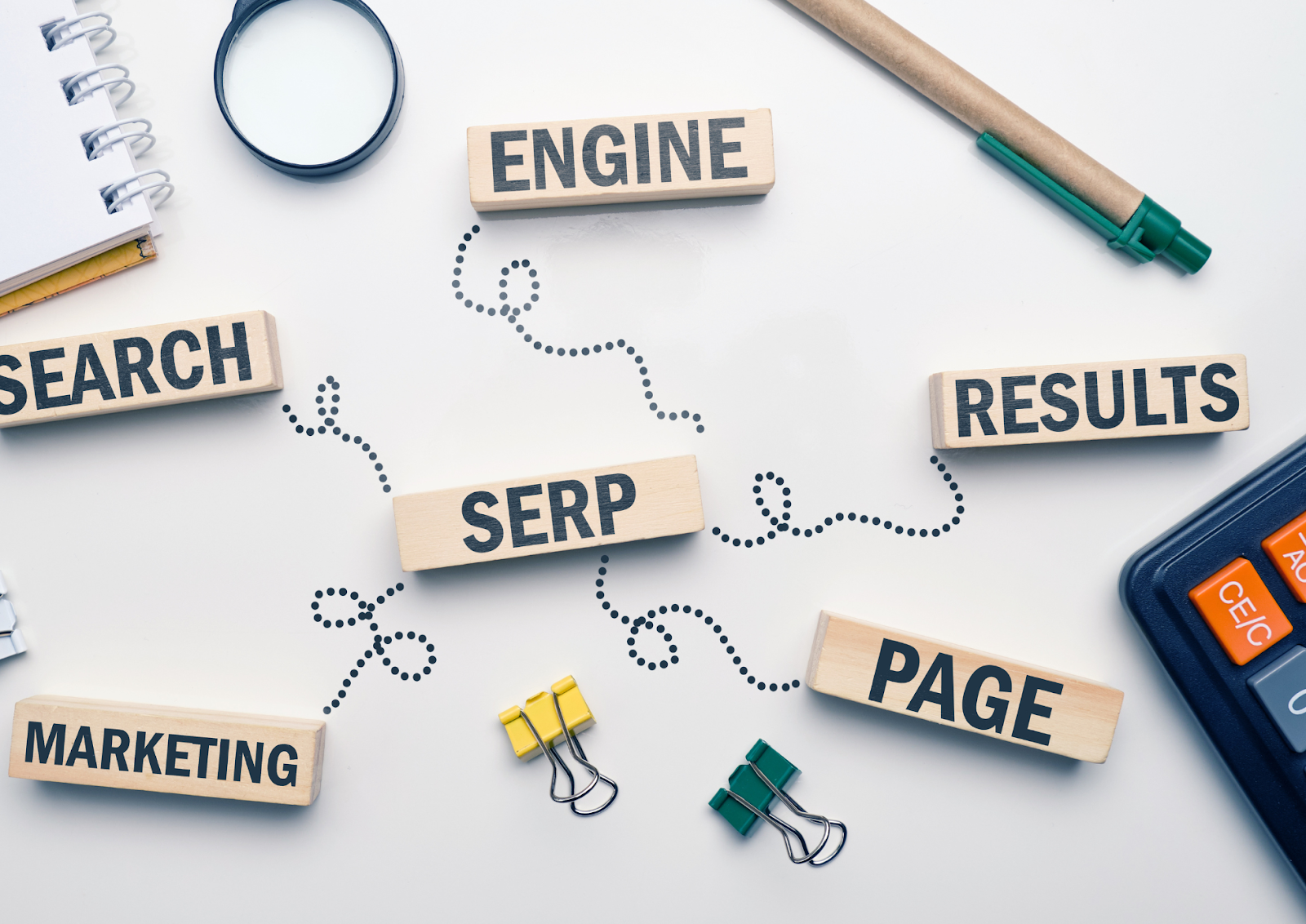Do you make meta descriptions manually because you don’t know how to use a meta description generator? Don’t worry, this guide explains how to use them properly.
A meta description generator is an AI-powered tool that can help create optimized, high-quality, SEO-friendly meta descriptions for your blog posts in just a few clicks.
These meta description generators use GPT-3 from Open AI to generate short descriptions for articles. It’s best for guides, how-to articles, listicles, blog posts, etc.
With the aid of artificial intelligence (AI), this tool analyzes relevant keywords and offers valuable tips for using them in your description.
Overall, meta description generators make it easy to create meta tags, keywords, and simplified descriptions that will help you reach your SEO goals.
Keep in mind that your meta descriptions should be relevant to your website or blog content, as this is what will appear in search engine results pages.
Good meta descriptions will help improve your click-through rate, so it’s worth creating one that accurately reflects your web page.
If you’re looking to generate great meta descriptions for your website or blog, there are a few things you’ll need to keep in mind . Here are some steps on how to use a meta description generators:
First, specify the subject of your article, then write the title along with the target keyword for your post. You’d like to see it in the meta description and click “Generate Ideas”.
Copy and paste the generated SEO meta description into your website or blog’s code. Lastly, save your changes and publish your website or blog.
These steps will help you create an SEO meta description that can improve your website or blog’s click-through rate.
Advantages of using Meta Description Generators Artificial intelligence is the driving force that powers numerous tasks we are no longer required to complete.
Suppose you are thinking about using meta description generators. In that case, this article will assist you in evaluating the advantages and disadvantages of using meta description generators before investing and using them on your web page.
Some of these advantages are: Time-saving When you write your meta description online, you do not have to look for the appropriate words or worry about miswriting them. All you need do is utilize the generator and write a relevant brief. Cost Saving The use of an online generator for meta descriptions is typically cost-free. You don’t have to pay an experienced writer to develop a successful meta description. Quality When you utilize a meta description generator, you’ll have a better outcome than if you attempted to write the description yourself to get meta description ideas. This is because most generators are created to accomplish this. So, make sure you use the appropriate keywords and terms to complete the meta description as effectively as possible to rank it well by search engines.
Online Meta Description Generator is a handy tool available online, making its use convenient. It is generally simple and does not require a profound understanding of the technology. Disadvantages of Using Meta Description Generators It isn’t easy to find a generator tailored to your needs. Using tools might not be 100% accurate. A few meta description engines available online might not be able to provide the required keywords to describe your blog post. You might require to register or signing up for an account before using a generator. Some search engines do not support using meta description generators on the internet. The meta description generator on the internet is a computer and can make mistakes. How to Choose the Right Meta Description Generator When optimizing your web page for search engines, your meta description is one of the most important elements.
This is the brief text that appears under your page title in the search results, and it should be carefully crafted to entice people to click through to your site. organic traffic
With that in mind, it’s important to choose a meta description generator that will help you create the most effective text for your web page. Here are some factors to keep in mind when making your selection:
Ease of use The best meta description generators will be easy to use, even if you’re not an SEO expert. Look for a tool that offers a simple interface and clear instructions. Flexibility The best meta description generators will offer flexibility to customize your text to match your needs. Look for a tool that allows you to change the length of your text and the density of keywords. Price There are both free and paid meta description generators available. In general, paid tools will offer more features and flexibility, but a free tool can still be effective if you’re on a tight budget. Support If you have any questions or problems while using your meta description generator, it’s important to have access to support. Look for a tool that offers email or live chat support from a team of experts. By keeping these factors in mind, you can be sure to choose the right meta description generator for your needs
How to Make the Most of a Meta Description Generator Here are some tips on how to make the most of a meta description generator.
Be sure to make your instructions clear. The quality of the output that an AI tool outputs is directly related to the information you input so make your instructions simple. Let the AI understand how the content is supposed to be sounded, what the voice should be like, what the content’s purpose is, and many more.
Use keywords. Make sure to include relevant keywords in your meta description, as this will help your website come up in search results for those terms. Do not skip the research phase. While AI can speed up the research stage but don’t overlook doing your own research. Be sure to complement the results of the generator by doing your own research to ensure that everything is correct and current.
Write for your audience. Keep in mind who you’re writing for when crafting your meta description. What would they be interested in? What would entice them to click through to your website? Make sure that your content will meet the needs of your readers much better than an AI tool could.
Review and check everything. they may also write in a way that doesn’t align with your brand’s voice. In this regard, it’s essential to proofread and check your work before hitting publish. Make it unique. With so many websites out there, you’ll want to make sure your meta description stands out. Use a meta description generator to help you create a unique and attention-grabbing description. By following these tips, you can make the most of a meta description generator and create meta descriptions that will help your website stand out and attract clicks.
The Future of Meta Description Generators As artificial intelligence (AI) tools become more prevalent, their impact on the future of digital marketing will grow. One area where AI can significantly impact is the meta description generator tool.
Meta descriptions give potential visitors a brief overview of your page and can often decide whether someone clicks through to your site.
These are either hand-written or generated using simple algorithms. However, as AI tools become more sophisticated, they will be able to generate meta descriptions that are more accurate and effective.
AI-generated meta descriptions will be able to take into account various factors, such as the user’s search history, the content of your page, and the overall context of the search that are more likely to result in a click-through.
In addition, AI tools can continuously test and optimize meta descriptions in real-time based on user engagement data. It will ensure that your meta descriptions are always performing at their best.
With the continued growth of the internet and the ever-changing landscape of SEO, having a tool that can help you create accurate and effective meta descriptions is essential.
So, if you’re looking to stay updated on the curve in the digital marketing world, keep an eye on the role that AI plays in generating effective meta descriptions.
Wrap-Up Meta descriptions are an integral part of winning more clicks on the Google Search Engine Results Page (SERP)
If you want to improve your website’s search engine optimization, one of the best things you can do is use a meta description generator tool. Instantly, you’ll have a well-optimized meta description.
So if you’re not using one, now is the time to start. It could be the key to driving traffic and improving your website’s performance.
Frequently Asked Questions What is the difference between an SEO title and a meta description? A meta description is a brief description of the content that appears in search engine results. It is meant to give users an idea of what the page is about so they can decide whether or not to click through to it.
What is the most effective meta description generator? The most effective and good meta description generator is a human with strong reading comprehension and writing skills.
How do you automate or auto-generate meta descriptions on Shopify? There are a few options available if you’re looking for a way to auto-generate meta descriptions for your Shopify store.
How do you generate meta titles and meta descriptions for your website? One way to generate meta titles and descriptions for your website is through a meta description generator. This can be a plugin or tool installed on your website or online service.
Can we have a different meta description on each page of our website? Yes, you can have a different meta description on each website page.



